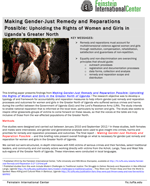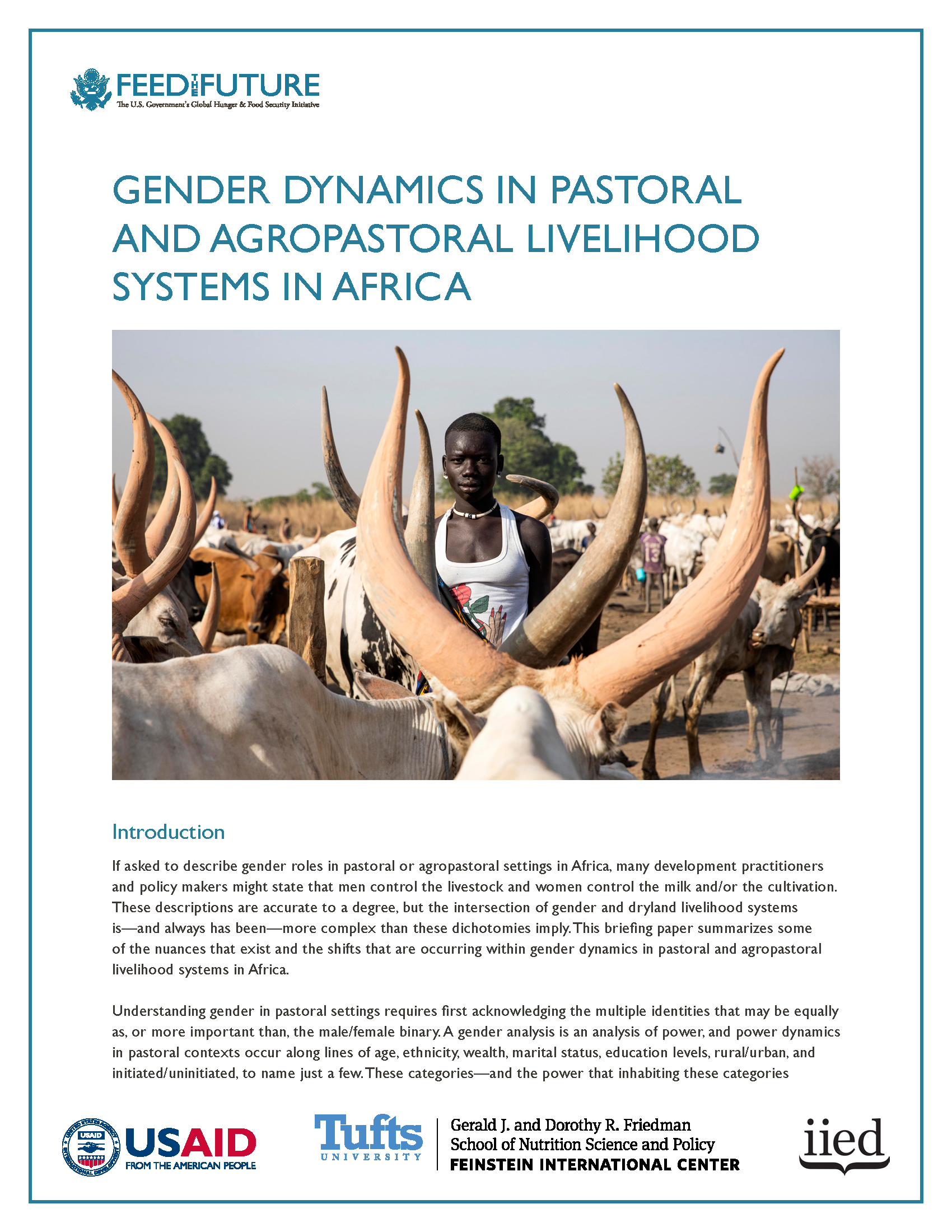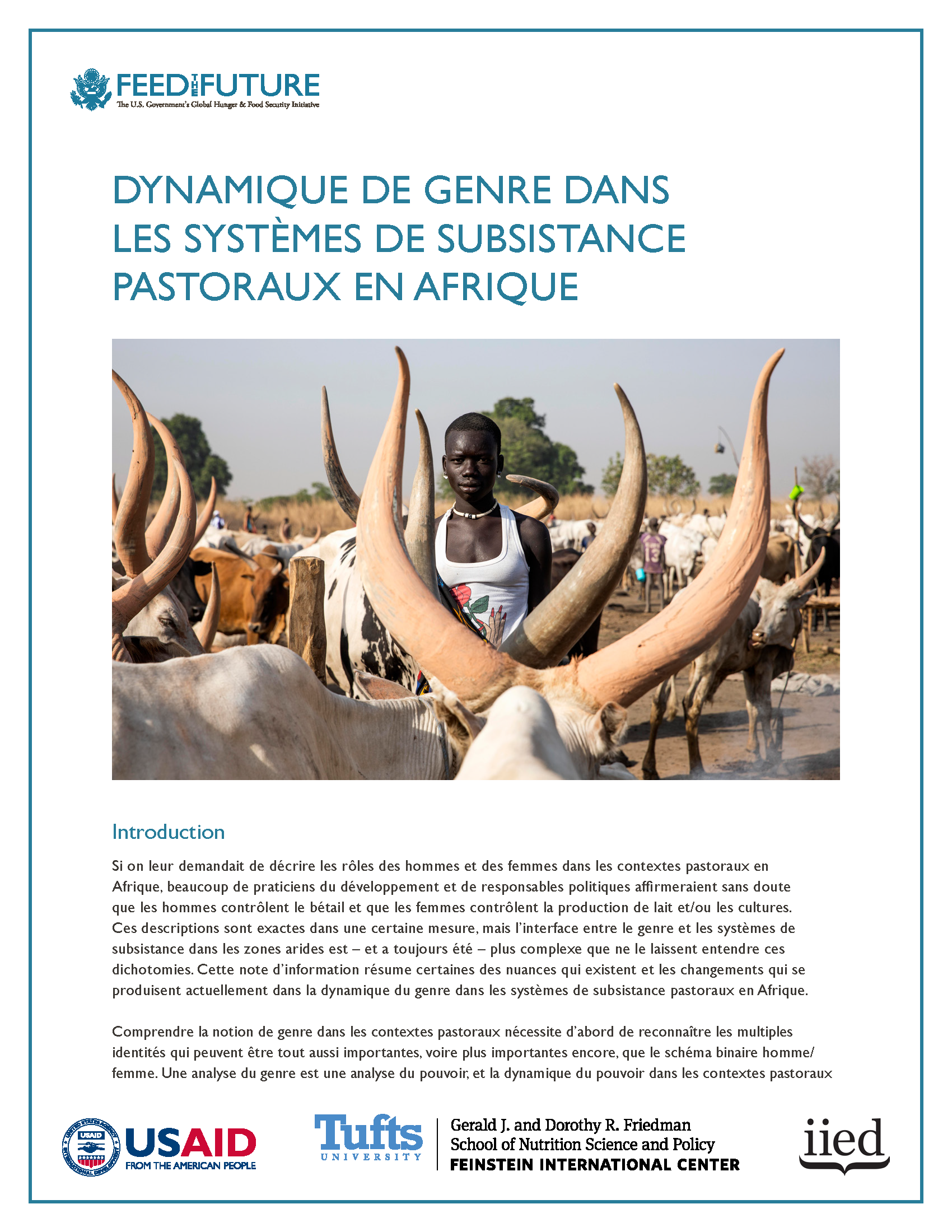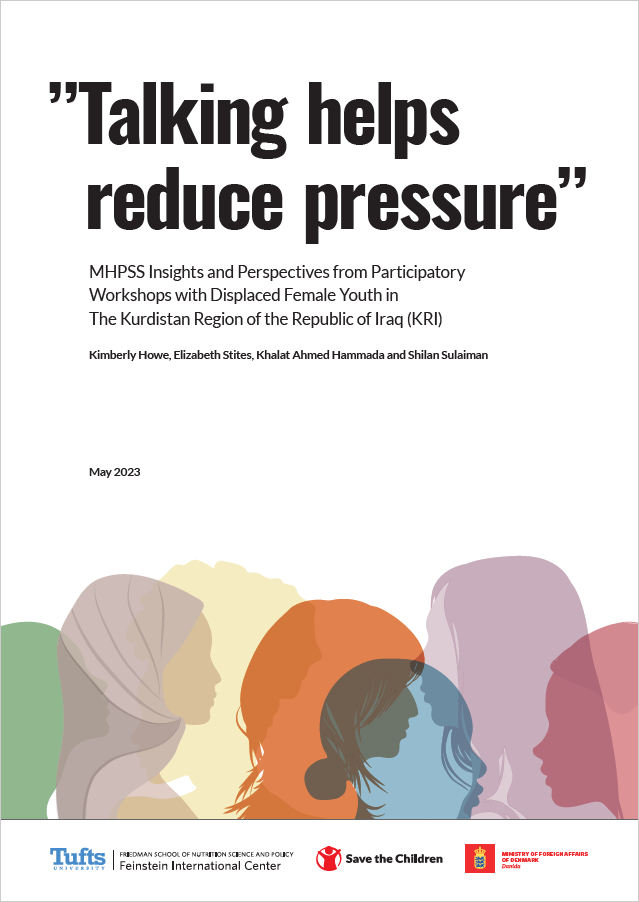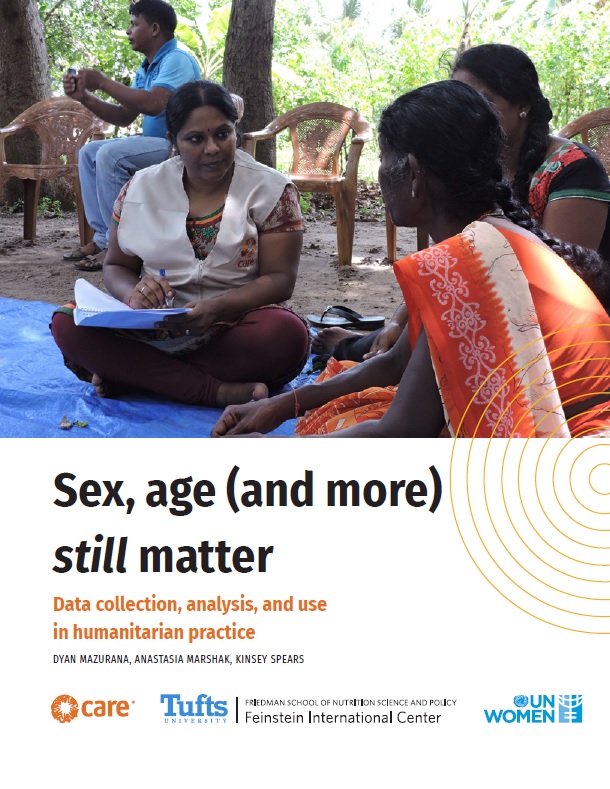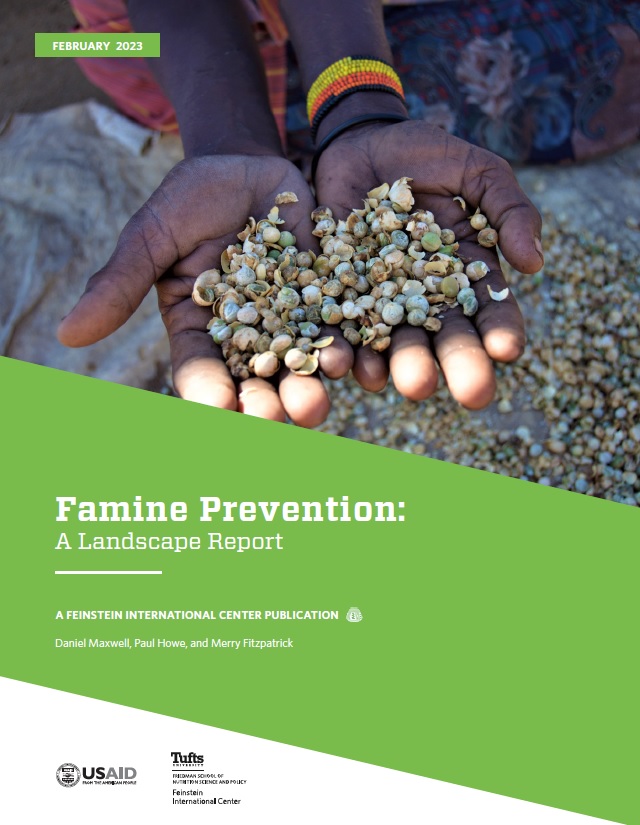Victims of serious violations of international human rights law and international humanitarian law have a clearly established right to remedy and reparation. This right must be recognized without discrimination of any kind. Processes of remedy and reparation therefore must neither enable nor support discrimination of any kind against victims. Because—as previous research has shown—female victims often lack access to and encounter discrimination in transitional justice processes, these requirements have significant implications for ensuring that female victims are treated without discrimination in remedy and reparation processes and outcomes. The goal of this research was to shape an understanding of what is needed for gender-just reparation based on the experiences and perspectives of women, girls, their families and communities who have suffered serious crimes during the armed conflict between the Government of Uganda and the Lord’s Resistance Army in the Greater North of Uganda.
This briefing paper is grounded in data from in-depth interviews with over 640 victims of serious crimes and their families from the sub-regions of Acholi, Lango, Teso and West Nile in the Greater North of Uganda, conducted by the authors between 2010–2012. The research documents and analyses how the serious crimes suffered during the conflict continue to affect the lives of female victims, their families and communities and how, in some cases, the violations have led to subsequent abuses, violations and harms. Building on this knowledge, the research develops and deepens an understanding of the principles, processes and forms of remedy and reparation (both individual and collective) needed to ensure gender-just processes and outcomes for female victims. Overall, the report seeks to inform and add depth to the current debates surrounding victims’ rights to remedy and reparation in Uganda and internationally. This report is part of a series of reports by the Feinstein International Center on victims’ views on accountability, remedy and reparation in northern Uganda.

